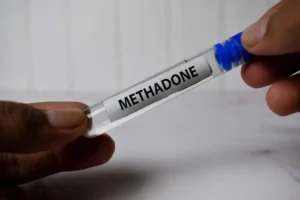Relapse Triggers People, Places & Things Causing Cravings

Patients in rehab may consider skipping treatment sessions or support group meetings to spend time with their friends and family. A break in the routine may leave periods of isolation where patients may be inclined to use substances. If the temptation to use again becomes too overwhelming, don’t hesitate to seek professional help.
Relapse Risk Factors
- Talking openly about a lapse or relapse with a care team can help you develop and strengthen your relapse prevention plan and identify how to get back on track with your recovery goals.
- Instead, a relapse signifies that additional and/or a different form of treatment is necessary.
- To quantify this, the direct effect of family function on relapse tendency accounts for 65.20% of the total effect.
- Identifying these triggers is essential in developing effective relapse prevention strategies.
You may think you miss your old life when you see these reminders, but remember the pain and hardship your addiction brought you as well. By making changes in your lifestyle, relationships, and priorities, you may be able to reduce the number of stressful situations in your life. By doing this, you will be reducing the likelihood of stress triggering a relapse. Managing these triggers often requires the ability to process experiences in your past that led to emotional wounds or trauma. Triggers that come from within you can be difficult to deal with because internal triggers can stem from a variety of sources that you can’t simply remove, like you can an external trigger. Clinical experience has shown that common causes of relapse in this stage are poor self-care and not going to self-help groups.
- By developing adaptive coping skills and practicing self-care during transitions, you can continue on your path to recovery and avoid setbacks.
- 3) Clients feel they are not learning anything new at self-help meetings and begin to go less frequently.
- In the journey of recovery, it is crucial to have a strong strategy in place to prevent relapse.
- The cognitive challenge is to acknowledge that recovery is sometimes hard work but addiction is even harder.
- They often assume that non-addicts don’t have the same problems or experience the same negative emotions.
What is the role of cognitive therapy and mind-body relaxation in relapse prevention?
Dealing with physical pain calls for the exploration of non-addictive pain management techniques and insistence on non-addictive prescriptions when necessary. By managing pain effectively without resorting to addictive substances, you can maintain your recovery and avoid relapse. During this stage, a person may not be thinking about using drugs or alcohol, but their emotions may be placing them in jeopardy of relapse. According to a review of relapse prevention, lapse and relapse are particularly common within the first year of seeking treatment.
Phone, Video, or Live-Chat Support
Avoidance is an excellent coping strategy if you know that you are likely to run into danger. But life is often unpredictable and it’s not always possible to avoid difficulty. What is more, negative feelings can create a negative mindset that erodes resolve and motivation for change and casts the challenge of recovery as overwhelming, inducing hopelessness. A relapse or even a lapse might be interpreted as proof that a person doesn’t have what it takes to leave addiction behind. Typically, those recovering from addiction are filled with feelings of guilt and shame, two powerful negative emotions.
Personality disorders are a group of mental health conditions characterized by enduring patterns of behavior, cognition, and inner experience that deviate markedly from societal expectations. These patterns typically manifest in adolescence or early adulthood and persist over time, causing significant distress and impairment in various areas of life. Understanding the different types of personality disorders and available treatment options is essential for effective management and recovery. Your support system is one of the most important influences in your addiction recovery. Keeping in regular contact with your counselor or sponsor can help you avoid this relapse trigger. Relapse is not an event, but a process that can be divided into stages.
Relapse Prevention: Strategies to Avoid Triggers
Some models of addiction highlight the causative role of early life trauma and emotional pain from it. Some people contend that addiction is actually a misguided attempt to address emotional pain. However, it’s important to recognize that no one types of relapse triggers gets through life without emotional pain. Cravings occur because the human brain has remarkable powers of association. They are typically triggered by people, places, paraphernalia, and passing thoughts in some way related to previous drug use.

They want to prove that they have control over their addiction and they are not as unhealthy as people think. Joining a self-help group has been shown to significantly increase the chances of long-term recovery. The combination of a substance abuse program and self-help group is the most effective [22,23].

Exposure to substances or peer pressure
- It can also be assuring to know that most people have the same problems and need to make similar changes.
- This can mean being surrounded by supportive loved ones, going to counseling regularly, or attending a peer support or 12-Step group.
- I have counseled many clients who spout and pontificate how they have finally realized how important sobriety is.
- Sometimes they think that avoiding high-risk situations is a sign of weakness.
A behavioral strategy is to call and engage in conversation with a friend or other member of your support network. Craving is an overwhelming desire to seek a substance, and cravings focus all one’s attention on that goal, shoving aside all reasoning ability. Perhaps the most important https://ecosoberhouse.com/ thing to know about cravings is that they do not last forever. It is also necessary to know that they are not a sign of failure; they are inevitable. But their lifespan can be measured in minutes—10 or 15—and that enables people to summon ways to resist them or ride them out.


